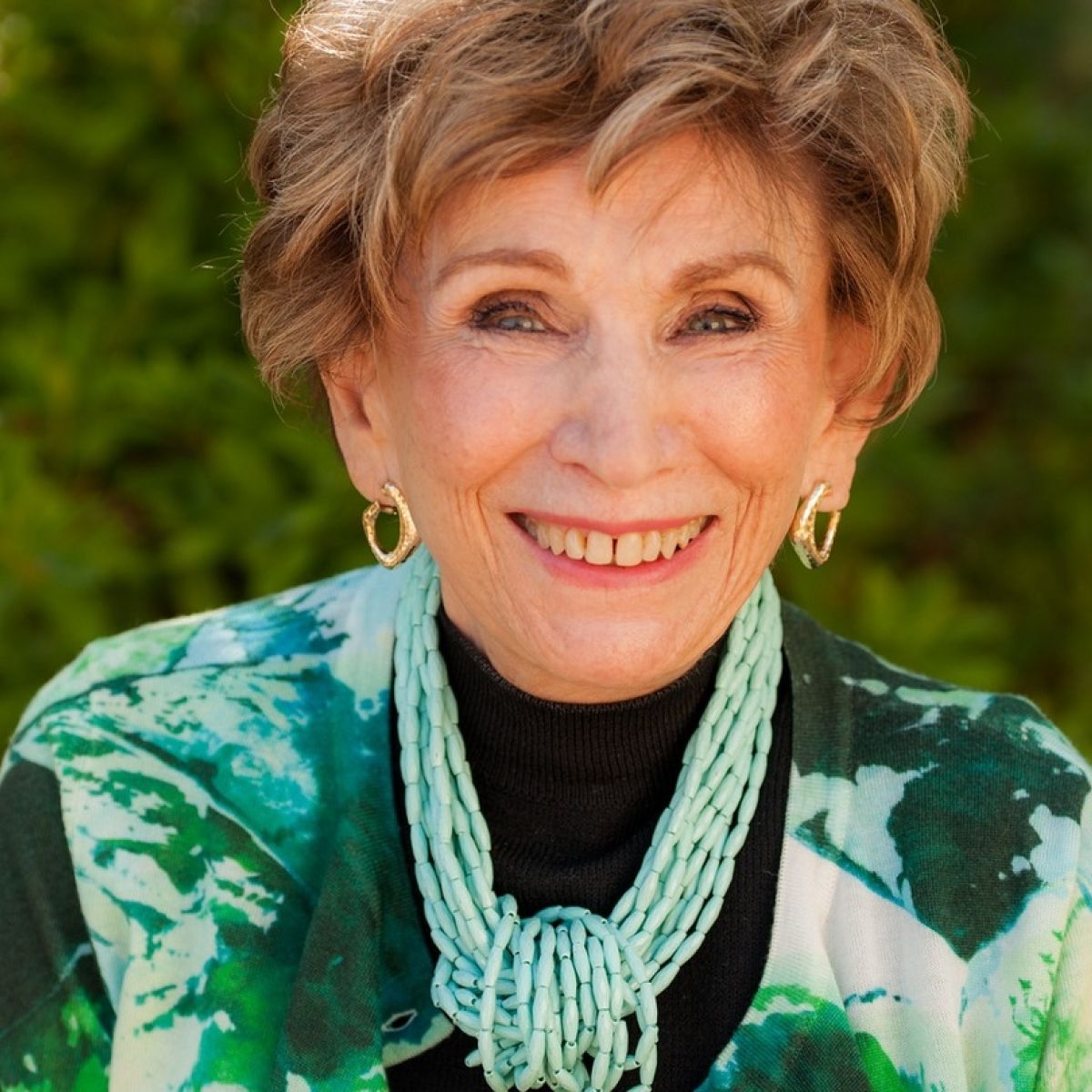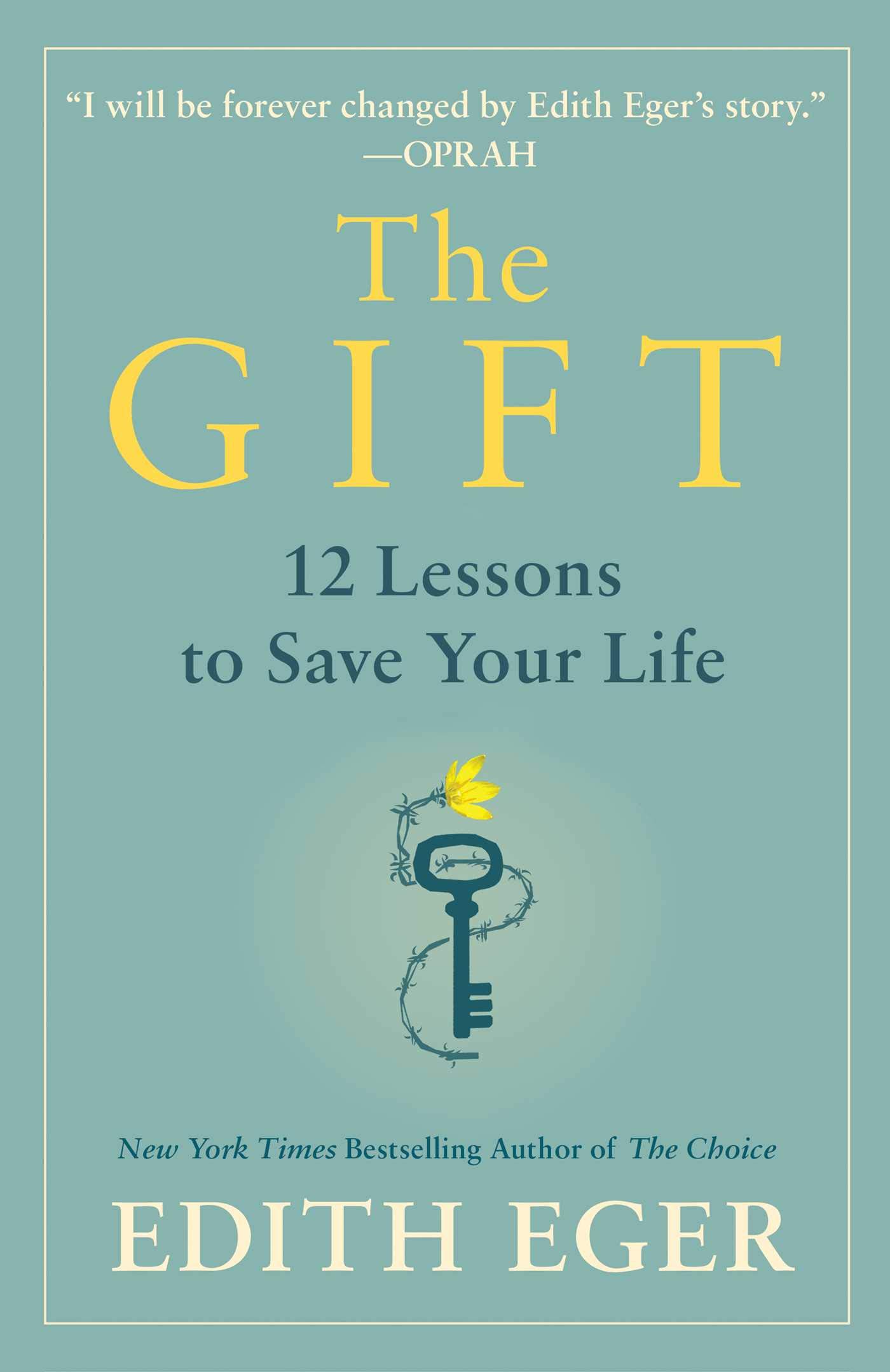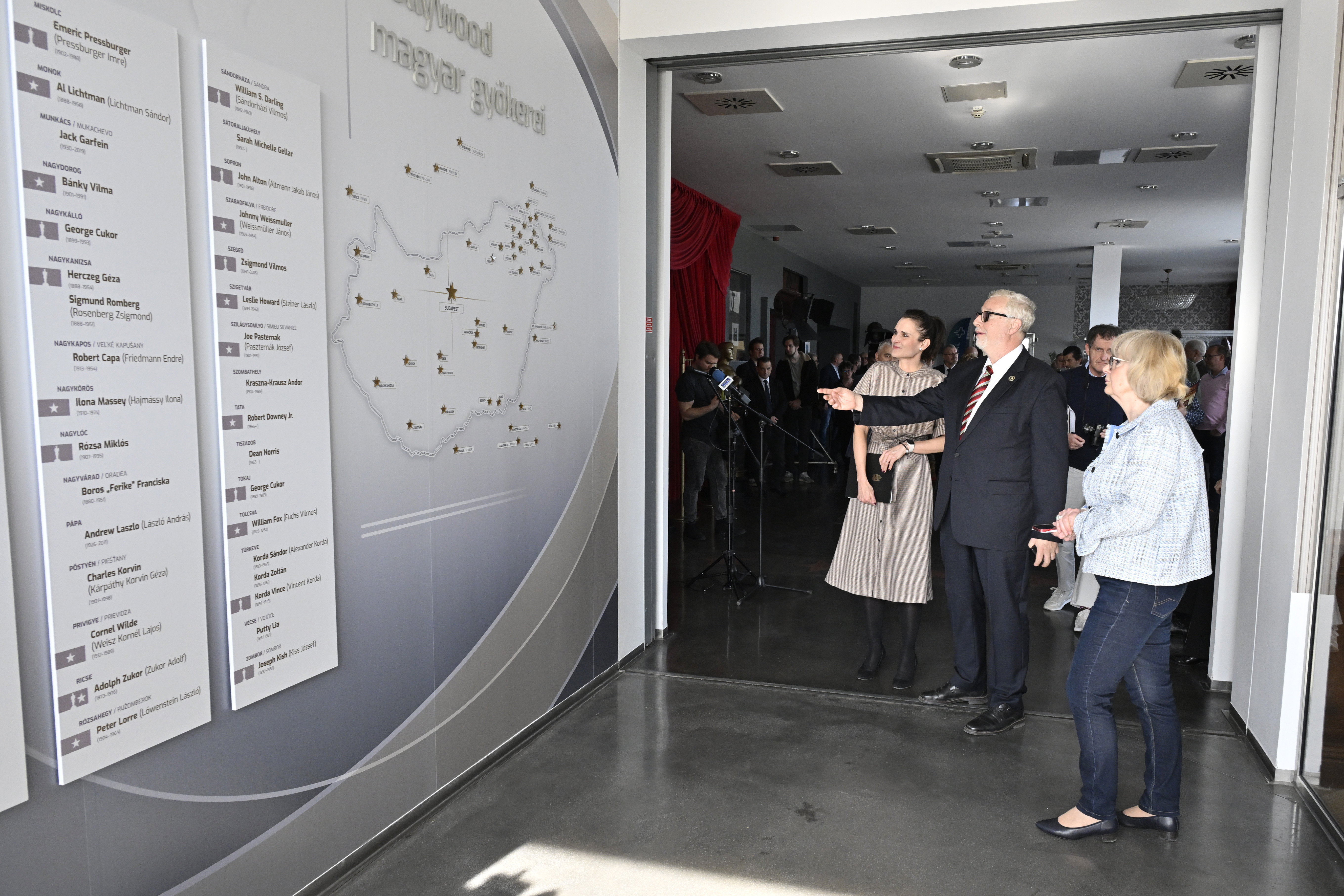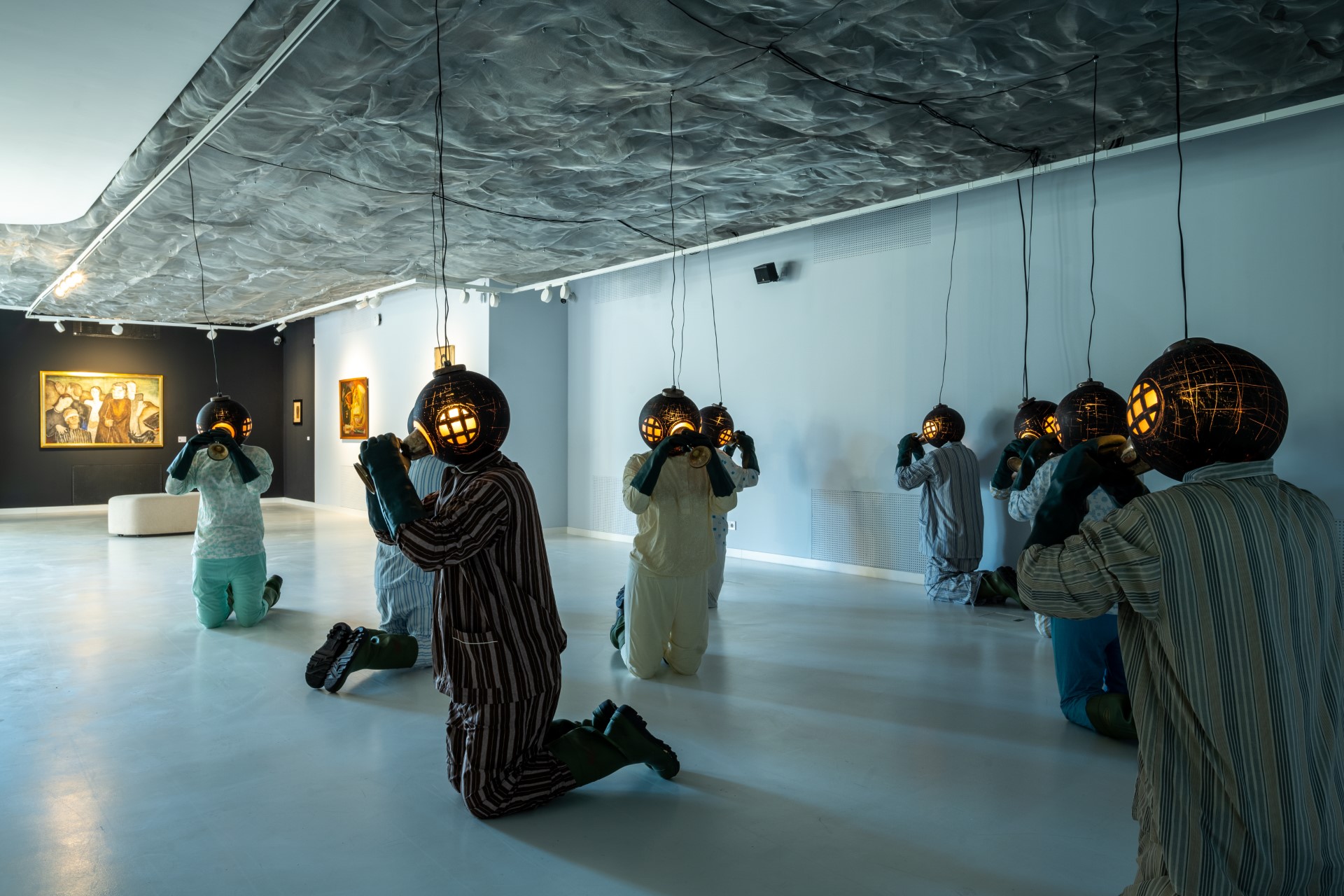Inside Hungarian Bestseller Edith Eger’s ‘The Gift’

Edith Eger
Photo courtesy of dreditheger.com
The other night, my partner and I were feeling rather gloomy. This isn’t so unusual for her – she’s Hungarian, after all – but somewhat rare for me, a Brit who prides himself on his optimism.
I attempted to shut out pandemic paranoia by watching a Marvel superhero series on Netflix. That is, until I started to wonder if our current fascination with powerful mutants, often engineered by shadowy government bodies, isn’t a byproduct of virus fear.
My partner buried herself in her new book, “The Gift” by psychologist Edith Eger.
Edith Eger was born in 1927 to Hungarian Jewish parents in the town of Košice, now in Slovakia but Hungarian up until the end of World War I (when it was part of Czechoslovakia), and again between 1938 and 1945, when it was known as Kassa.
An outstanding gymnast, Eger was a member of the Hungarian Olympic team in gymnastics until she was removed in 1942, as a result of the harsh anti-Jewish laws introduced by the Hungarian government. She was also a fine ballet dancer.
In May 1944, Eger was deported to Auschwitz with her parents and sister Magda. Along with her mother, she was selected for the gas chamber by the infamous Josef Mengele. Her mother died, but in her memoirs, Eger describes how Mengele made her dance for him in her barracks that same evening and rewarded her with a loaf of bread which she shared.
According to her memoirs, Eger ended up in Gunskirchen concentration camp (near Lambach, Austria), where she ate grass to survive. When the U.S. military liberated the camp in May 1945, a soldier spotted Eger’s hand move after she’d been left for dead in a pile of bodies and saved her life. She weighed 32 kilos, had a broken back, typhoid fever, pneumonia and pleurisy.
Together with her sister Magda, Eger recovered in American field hospitals. Returning to Kassa, now Košice again, they found their other sister Clara. Edith married Béla Eger, a Jew who had fought with the partisans during the war. In 1949, after being threatened by communists, they fled to the United States with their daughter.
Suffering from intense survivor guilt and trauma, Eger attempted to bury her past. After becoming friends with the Jewish Austrian neurologist, psychiatrist, philosopher, author and fellow Holocaust survivor Viktor Frankl, Eger went into therapy and received her PhD in Clinical Psychology and her license to practice as a psychologist. She opened a therapy clinic in La Jolla, California and became a member of the faculty at the University of California, San Diego.
Free Your Mind
Today, Eger’s work as a psychologist is all about helping her clients free themselves from their own thoughts and make their own choices.
Realizing that she had to confront her horrific past, Eger returned to Auschwitz in 1990. She published her experiences in the bestselling “The Choice” (2017), her first book. Of this, Oprah Winfrey said “I’ll be forever changed by her story.” 2020’s “The Gift” is Eger’s second book. It has received glowing reviews and been included in Forbes’ “11 Growth-Oriented Books To Read In 2021.”
“The Gift” builds on Eger’s realization that “Every moment in Auschwitz was hell on earth. It was also my best classroom. Subjected to loss, torture, starvation, and the constant threat of death, I discovered the tools for survival and freedom that I continue to use every day in my clinical psychology practice as well as my life.”
At the heart of “The Gift” is the observation that we choose to be victims and the worst prisons are the ones we build for ourselves.
The book tells the stories of people Eger has treated who have suffered appalling injuries and been well and truly kicked in the teeth by life. Eger describes it as “a practical guide to help us identify our mental prisons and develop the tools we need to become free.”
Chief among these tools is choice. “We can always choose how we respond,” Eger says, “and I seek to highlight and harness my patients’ power to choose, to effect positive change in their lives.”
Sharing Recipes
After each story, Eger offers suggestions to put her principles into practice. These are like those in 99% of self-help books, boring and impractical. There’s also a subplot, if you can call it that, involving Eger and her daughter sharing Hungarian recipes which is more fun. It’s also, I’m sure, one of the reasons “The Gift” has become a Hungarian bestseller.
Half an hour or so after she began reading “The Gift”, my partner began to nod her head and smile. I asked her what the book was like.
She told me some of the stories Eger describes in the book, like that of the woman who was shot and left for dead by a deranged member of her husband’s family. The woman suffered terribly but Eger offered her a way to resist becoming a victim.
After hearing this story, and a couple more, I realized I was becoming more cheerful. The privations my partner and I were suffering because of the pandemic paled into insignificance compared to these grim stories.
I encouraged my partner to read more extracts. Soon we were feeling positively chirpy and had completely forgotten our own woes.
Now, I don’t know if this was what Eger intended. Frankly, I don’t care, I’d rather read “The Gift”, or have it read to me, than watch hours of Netflix cartoon violence and smartass wisecracks.
I’m with Eger when she writes, “We flourish when we harness ‘learned optimism’ – the strength, resiliency, and ability to create the meaning and direction of our lives.”

"The Gift” (224 pages, published by Rider) can be bought in hardback or paperback from Amazon, Penguin and Waterstones, among others, and is also available as an audiobook from Simon & Schuster Audio, read by Tovah Feldshuh. Alternatively, if you want to support a local business, you can order it through the independent bookseller Bestsellers (11, Október 6 utca 11, Budapest), or via bestsellers.hu, its website.
This article was first published in the Budapest Business Journal print issue of April 23, 2021.
SUPPORT THE BUDAPEST BUSINESS JOURNAL
Producing journalism that is worthy of the name is a costly business. For 27 years, the publishers, editors and reporters of the Budapest Business Journal have striven to bring you business news that works, information that you can trust, that is factual, accurate and presented without fear or favor.
Newspaper organizations across the globe have struggled to find a business model that allows them to continue to excel, without compromising their ability to perform. Most recently, some have experimented with the idea of involving their most important stakeholders, their readers.
We would like to offer that same opportunity to our readers. We would like to invite you to help us deliver the quality business journalism you require. Hit our Support the BBJ button and you can choose the how much and how often you send us your contributions.









